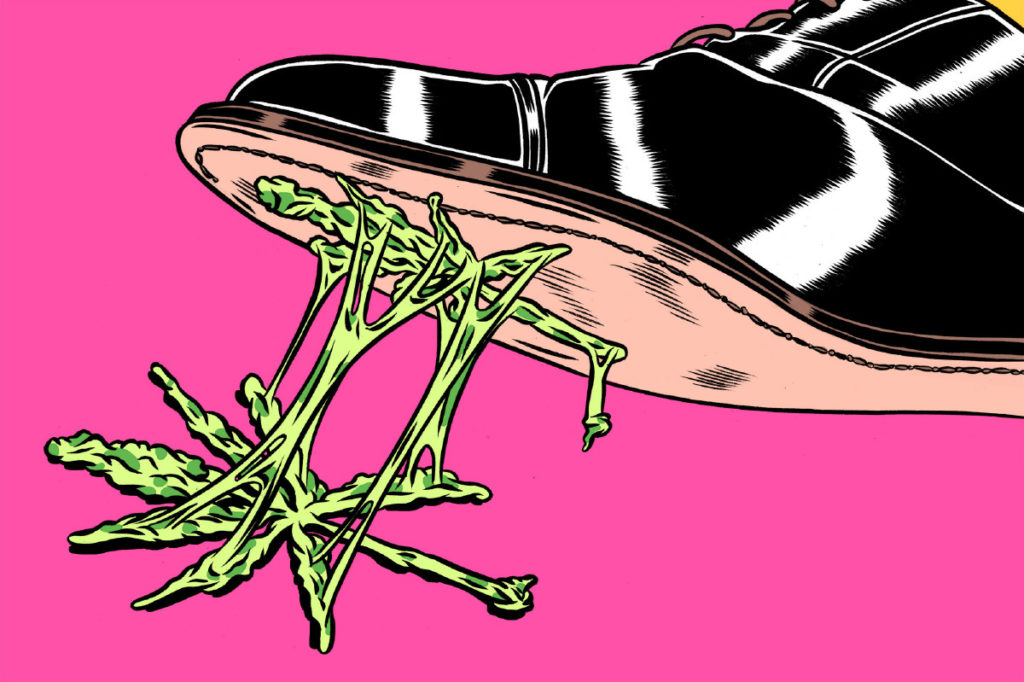William “Beau” Wrigley Jr. envisioned building a weed empire that would one day rival his family’s legendary chewing gum business.
The former CEO of the Wrigley Company — which was sold to Mars for $23 billion in 2008 — led a $65 million investment in 2018 in Surterra Wellness, which primarily did business in Florida’s fledgling medical marijuana market.
Shortly thereafter, Wrigley took over as Surterra’s CEO, but the path forward would prove to be messy.
In the ensuing years, the company — eventually rebranded Parallel — expanded its footprint into Massachusetts, Nevada, Pennsylvania and Texas. And it recruited the type of big-time executives that typically shy away from the quasi-legal cannabis industry.
By the end of 2022, Parallel boasted that it was on course to have 86 dispensaries across eight markets and revenues in excess of $600 million.
“I think this can be bigger than the Wrigley company,” Wrigley told Forbes magazine for a cover story in February 2021. “At Wrigley, we brought joy to people’s lives. This is much bigger than that.”
That same month, Parallel announced in a press release a blockbuster deal that if consummated would solidify its plans to become a major national player in the booming $30-billion-plus cannabis industry. Ceres Acquisition Corp. — a special purpose acquisition corporation, or SPAC, co-founded by music mogul Scooter Braun, whose clients have included Justin Bieber and Ariana Grande — planned to purchase Parallel and take it public in a deal valued at $1.9 billion.
But in retrospect, what appeared to be a capstone moment for Wrigley’s burgeoning weed empire marked the start of a period of legal and financial turbulence. Just seven months later, the SPAC deal collapsed. Less than two months later, Wrigley stepped down as the company’s CEO, although he remains chairman of its board.
Now Wrigley and the company face a pair of lawsuits from investors who allege Parallel officials concealed massive debts, issued fanciful financial projections, engaged in self-dealing and committed various other misdeeds to defraud them.
“Although the Company participates in the comparatively new industry of legal cannabis, … the Securities Defendants still committed good old-fashioned securities fraud,” reads the complaint filed in the U.S. District Court for the Southern District of Florida in March.
The company’s founding CEO Jake Bergmann, who left shortly after Wrigley took charge, is also suing the company for roughly $20 million. More lawsuits are almost certainly in the pipeline, according to some investors who aren’t involved in the current cases.
A spokesperson for Wrigley issued a statement in response to POLITICO’s inquiries about the lawsuits: “Mr. Wrigley is confident the facts will demonstrate the allegations in the complaints have no merit. He will defend against these false claims in court.”
The lawsuits are still in the early stages, so it’s difficult to weigh the merits of the claims.
Parallel has yet to provide a detailed response to the allegations in court filings, although it has filed a motion to dismiss one of the lawsuits. The company did not respond to requests for comment. Lawyers for Parallel declined to comment.
While the details of Parallel’s financial struggles are unique to the company, in many ways its plight is emblematic of the broader cannabis industry. Even as the weed market continues to boom as legalization spreads rapidly across the country — sales are projected to hit $32 billion this year, more than doubling since 2019, according to New Frontier Data — most companies continue to hemorrhage money and stock prices have collapsed over the last year. The continued federal illegality of marijuana means that companies face sky-high taxes, steep barriers to access capital and stiff competition from the entrenched illicit market.
“The challenge with cannabis is that it’s a very capital intensive industry … especially [building a] vertically integrated [and multi-state company] like Parallel,” said Neil Kaufman, a corporate cannabis attorney based in New York. “[Parallel] had that classic challenge of needing a lot of money and taking longer than they had planned to get to cash flow positive.”



